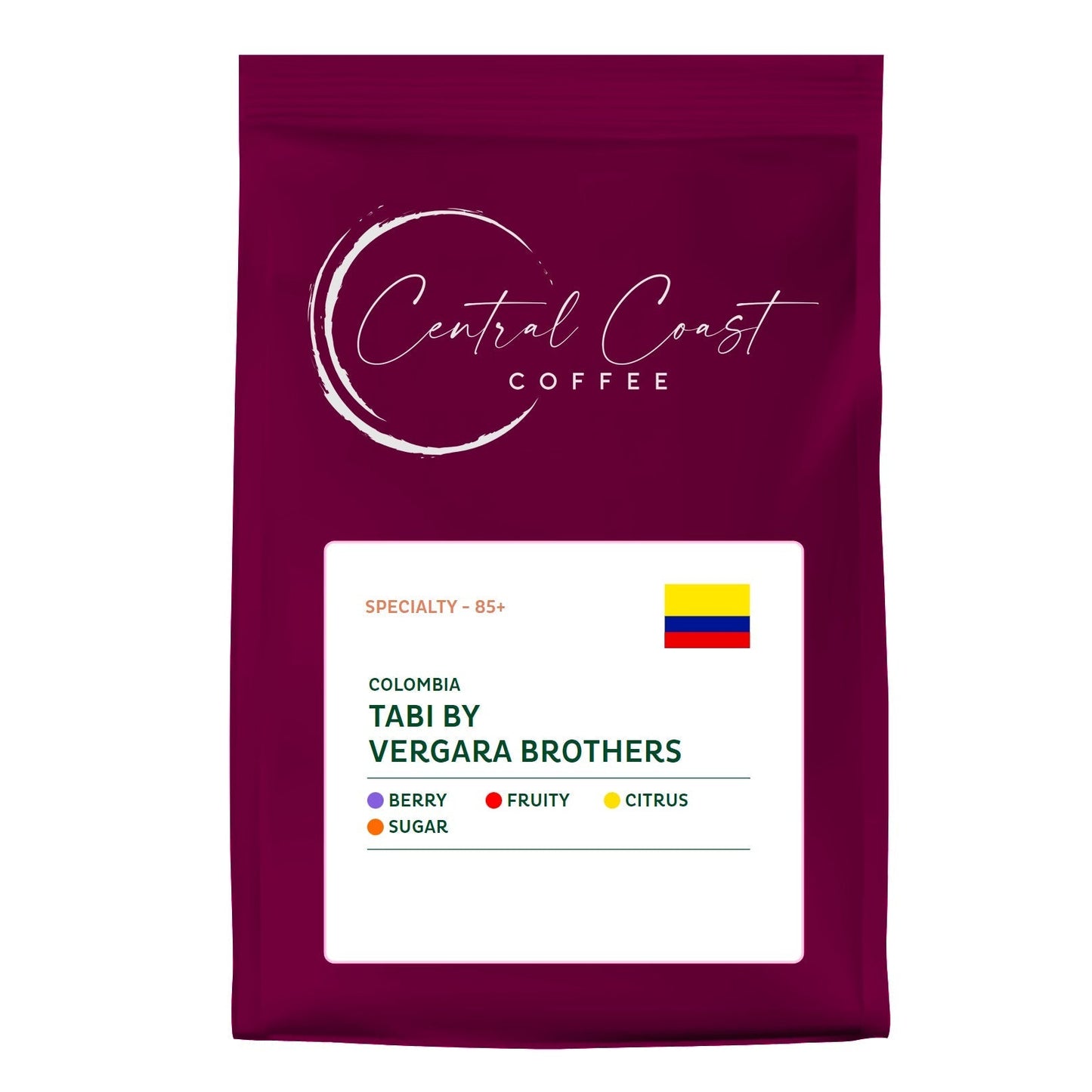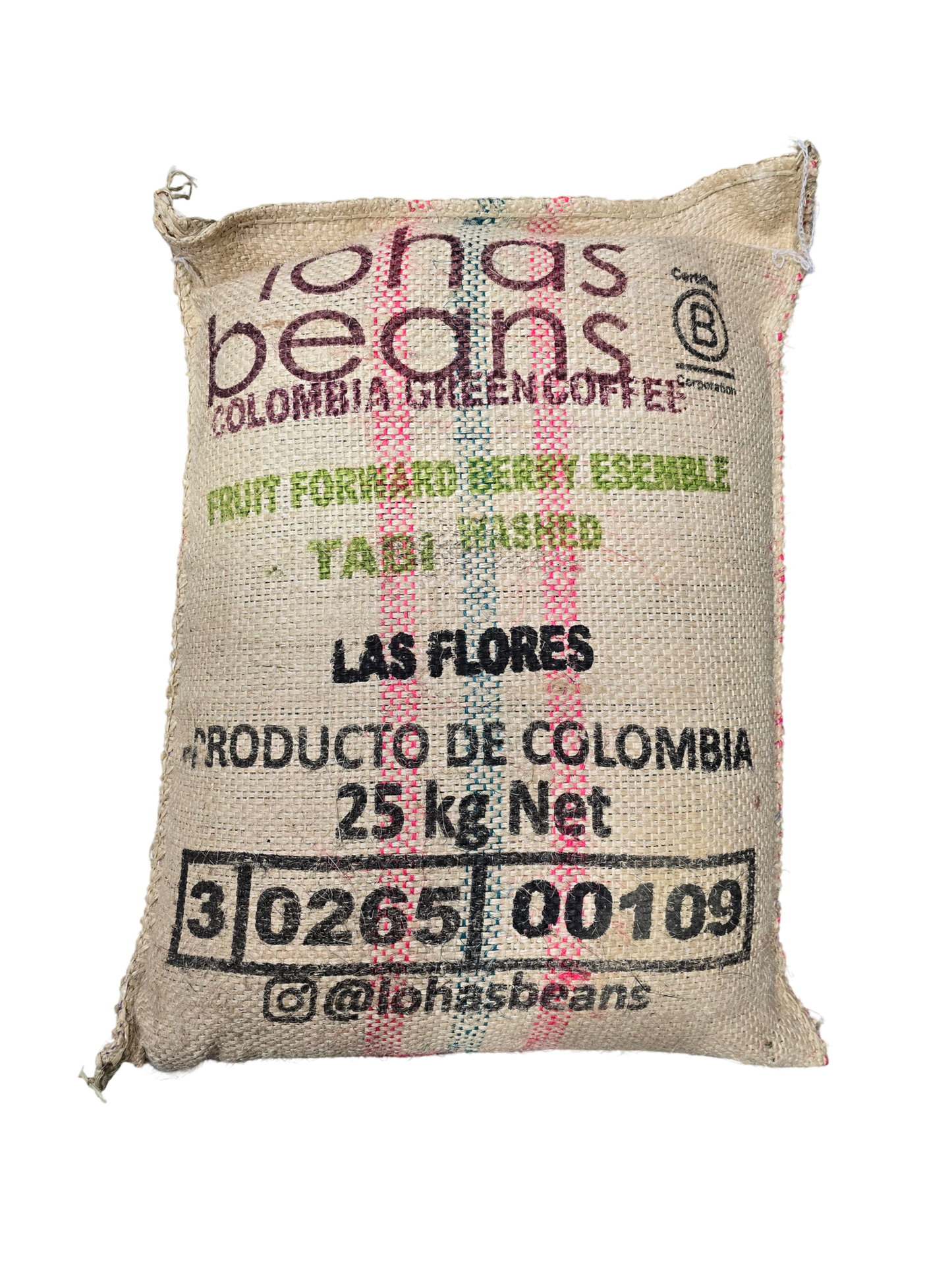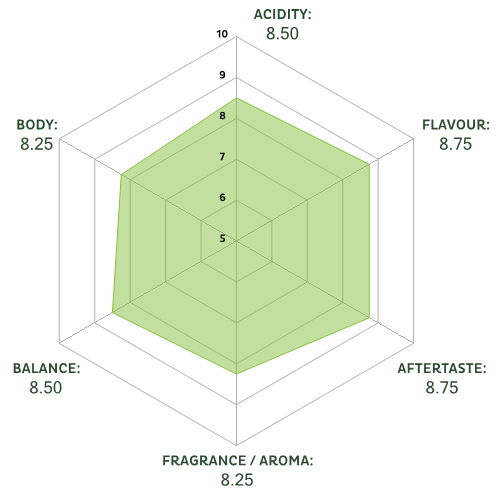


This coffee’s roasted in our filter style — meaning it’s designed to shine as black coffee rather than with milk. That doesn’t mean you have to brew it as a pour-over though. You can make it however you like — espresso, moka pot, AeroPress or anything in between. We simply roast it a little lighter to highlight the bean’s origin flavours giving you a cup that’s clean, vibrant and full of clarity.
Lighter roasting keeps more of the natural acidity and sweetness intact which makes for a beautifully expressive black coffee. This coffee is best enjoyed without milk as it’s too acidic and the flavours don’t pair well once milk is added.
If you prefer your milk coffee with richer caramel, toffee or nutty flavours you might enjoy our espresso range more. Those roasts are taken a little darker to bring out deeper sweetness and balance beautifully with milk.
Origin and Sourcing
?
?
?
Other soils provide unique advantages, often blended for optimal results. Clay retains moisture well, supporting hydration in dry areas and earthy flavors when drained to avoid root issues. Loamy soils balance sand, silt, and clay for excellent fertility and drainage, fostering healthy roots and smooth, sweet cups—commonly paired with volcanic ash, as in "Soil Characteristics: Volcanic Ash, Clay Loam." Sandy soils drain quickly but need extra nutrients to prevent drought, producing lighter, crisp coffees.
Laterite, iron-rich tropical soils, require management for their nutrient gaps but yield bold, spicy profiles. By selecting or combining these—from mineral-packed volcanic types to versatile loamy blends—growers minimize erosion, boost plant vigor, and craft distinctive terroir-driven flavors.
?
Roast Details
?
?
?
?
?
?
?
Taste Profile
?
?
Colombia | Las Flores | Tabi Washed | Signature Series - When is peak flavour?
Light Roast - Roasted on Roest L100 Ultra
Growing Temperatures: 18-28 degrees
32% - 17
41% - 15
This coffee comes to us from Finca Las Flores, a 70-hectare farm near San Isidro in the Huila region of Colombia. The farm is owned and run by the Vergara family, with 4th generation producer, Johan, assuming more responsibility from his father, Edilberto.
The Colombia Washed Tabi stands as a testament to the artistry and innovation of Colombian coffee production, hailing from the picturesque region
of Acevedo in Huila, Colombia, at an elevation of 1750 meters above sea level.
Distinguished by its fruit-forward berry ensemble, the Colombia Washed Tabi presents a symphony of flavours that dance across the palate with each sip.
The journey from cherry to cup is marked by meticulous attention to detail, with each step carefully orchestrated to preserve the coffee's pristine
quality. Harvested in a semi-ripe stage, the cherries undergo a unique protocol designed to mitigate intense fermented flavours while enhancing their
inherent characteristics.
Following the selection process, the cherries undergo a series of fermentation stages, including oxidation and thermal shock, to unlock their full potential. The fermentation process is abruptly interrupted through a combination of hot and cold-water quenching, ensuring the elimination of microbial load while fixing the volatile compounds released during fermentation.
Pristine precision drying serves as the final stage in the journey of the Colombia Washed Tabi, where the coffee is carefully dried in a hermetically sealed stainless-steel dehumidifier until reaching optimal moisture content. This meticulous drying process preserves the coffee's fragrance, aroma, and taste profile, ensuring that each cup delivers a sensory experience of unparalleled quality and complexity.
About Las Flores
The Las Flores Farm is located in the Huila Region of Colombia at 1730 masl. Spanning over 14 hectares, the farm produces two crops coffee pear season – the main crop is harvested from February to March, and the mid-crop from September to October.
Begun in 1990 by the matriarch of the Vergara family, who was dedicated to raising 18,000 coffee trees. Each year the family continued to plant more
seedlings until they reached 90,000 coffee trees.
In 2006 Las Flores participated in the Cup of Excellence. From that moment the family began their journey into the world of specialty and
differentiated coffees. Dedicated to several years of testing, learning and a lot of experience, the family took time to identify what profiles their
coffees had and how they could be improved agronomically and in the cup.
Now three generations on, owner Edilberto Vergara with the help of his son Johan, has begun to adjust production and improve the post-harvest processes. Today they propagate varieties such as: Pink Bourbon, Tabi, Java, Maracaturra. In addition, they have implemented fermentation processes in exotic varieties such as Wush Wush and Bourbon Sidra.
All the coffee at Las Flores is handpicked and naturally dried to ensure consistency in quality. Different fermentation techniques such as oxidation
followed by anaerobic process and fermentation in bags is used to create unique flavour profiles.
Since 2017, the focus for Finca Las Flores has been a move away from the production of conventional coffees to a higher quality and differentiated offering. This has involved the introduction of new varieties including pink bourbon, tabi, and sidra, as well as the development and deployment of new, more experimental techniques for fermenting and drying the coffees.
While the more exotic varieties are trickier to grow, and the experimental processing techniques are riskier and more labour-intensive, the resulting coffees are strikingly different from the conventional production, and are often able to fetch significantly higher prices at market.
About Tabi Varietal
A cultivar developed for release in 2002 by the Colombian National Federation of Coffee Growers as part of Colombia’s efforts to combat leaf rust. The cultivar was intended to be a more disease-resistant combination of bourbon, typica, and timor that retained the pleasing flavour profiles of those varieties.
The name Tabi means “good” in the Guambiano (a native Colombian tribe) dialect. This coffee displays the positive cup qualities of it’s bourbon and Typica parents, while being more resistant to leaf rust
Coffee in Colombia
Colombia has been producing and exporting coffee renowned for their full body, bright acidity and rich aftertaste, since the early 19th century.
Colombia boasts a wide range of climates and geographic conditions that, in turn, produce their own unique flavors in coffee. This also means that harvest times can vary quite a bit. In fact, between all its different regions, Colombia produces fresh crop nearly all year round.
The increasing focus on the specialty industry is changing the way traders and farmers do business. It is becoming more common for farmers to isolate the highest quality beans in their lots to market separately. These higher-quality lots are often sold under specific brands or stories.
Besides its wide variety of cup profiles, Colombia has quickly expanded its certification options over the past 10 years. The most common certifications available are Fairtrade, Rainforest Alliance, UTZ and Organic.
SKU: colombia_las_flores_tabi_160g
Package Weight: 250g



